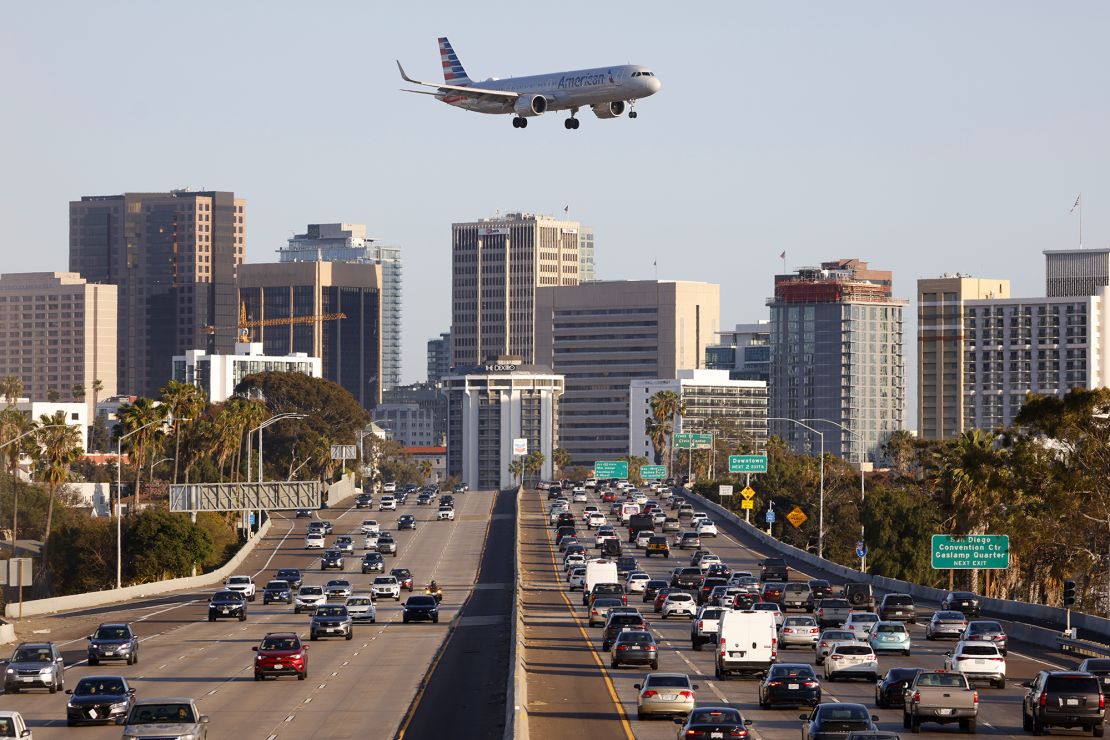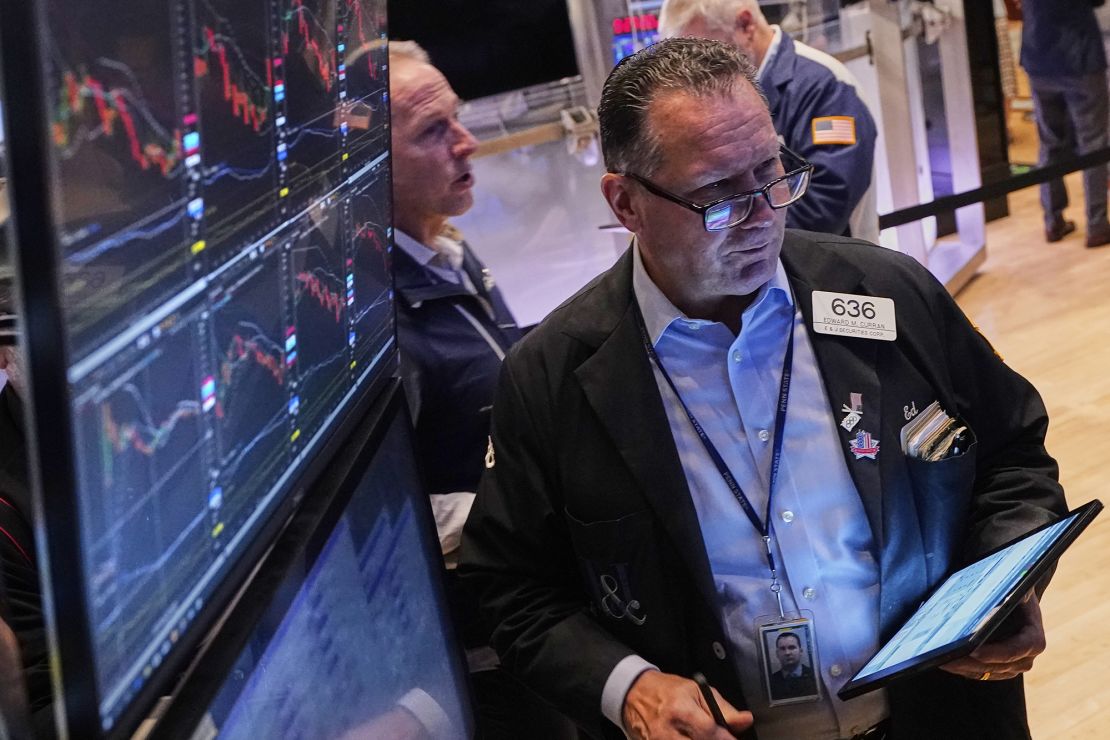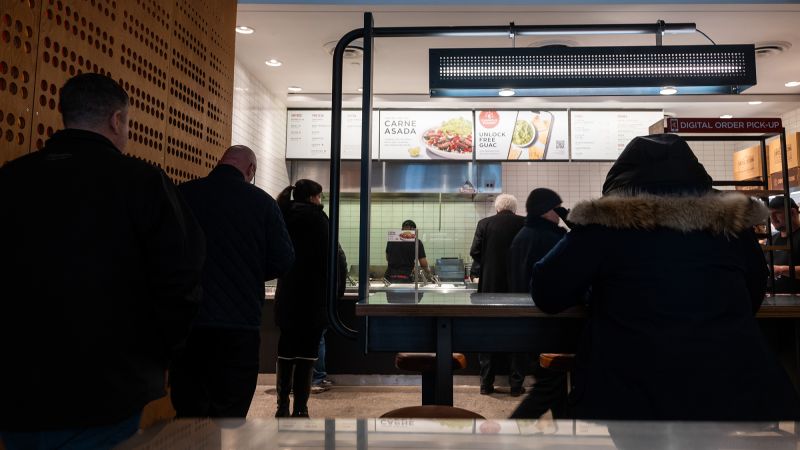New York
CNN
—
America’s largest companies say President Donald Trump’s erratic trade policies are leading consumers to spend less on airline tickets and burritos, raising costs for businesses and making it impossible to plan future investments.
PepsiCo, American Airlines, Chipotle, IBM, Procter & Gamble and other companies announced quarterly earnings this week, giving investors their first public comments on the impact of Trump’s tariffs. They all signaled that the import taxes are hurting consumers and the economy.
“We expect more volatility and uncertainty, particularly related to global trade developments, which we expect will increase our supply chain costs,” PepsiCo CEO Ramon Laguarta said in a statement. The company lowered its full-year profit outlook.
The Trump administration has made a series of dizzying announcements on tariffs on imported goods, the heaviest on China, provoking countries to retaliate with tariffs of their own. The United States has imposed a 10% universal tariff on virtually every good coming into the country, plus higher rates for certain goods, and 145% tariffs on China — essentially a trade embargo on the world’s second largest economy.
These whiplash policy decisions, along with a consumer slowdown, have been a nightmare for America’s biggest companies.
Burritos and diapers
Companies have not called out Trump by name, but they all say tariffs are taking a toll on business.
Chipotle reported its first drop in quarterly sales at stores open for at least a year since the Covid-19 pandemic. The chain also said tariffs will drive up the cost of imported ingredients, like beef from Australia and avocados from Peru.
Concerns around the economy “was the overwhelming reason consumers were reducing the frequency of restaurant visits” last quarter, Chipotle CEO Scott Boatwright said on a call with analysts.
Procter & Gamble, the maker of Pampers, Tide and other household brands, slashed its sales guidance for the year and said tariffs will likely cause prices to rise.
“Tariffs are inherently inflationary,” Procter & Gamble CEO Jon Moeller said in an interview on CNBC on Thursday. He said Procter & Gamble’s prices will likely increase starting in July, and the company will also look to change some of its products’ formulas to offset the impact from tariffs.

Plane tickets and hotels
Tariffs and economic pressure are also hurting airline travel. American Airlines, Delta, Southwest and Alaska Air have all pulled their financial guidance for the year, citing economic uncertainty. American Airlines said it would pass off the cost of new planes to consumers.
American Airlines vice chair Steve Johnson told analysts Thursday that lower-income Americans in particular are flying less.
“We believe it is mostly our most price-sensitive customers, for whom travel is most discretionary,” he said.
Hotels and tourism-reliant industries have also been impacted by fewer people traveling to America.
Businesses in leisure and hospitality across the country reported fewer Canadian tourists, in part a response to Trump’s policies, according to the Federal Reserve’s periodic survey of businesses across the country.
A New York City hotel owner reported to the Fed “a falloff in international reservations, and contacts in upstate New York near the border saw declining visits from Canadians.”
“Travel from Canada declined noticeably, and contacts feared that summer travel from Europe and China could suffer as well because of negative reactions to U.S. tariff policies,” the Fed report said.
American brand ‘eroding’
Tariffs have also sent the stock market plunging and slowed down the economy.
The Dow dropped 9.1% in the first three weeks of April, the index’s worst performance for any April since 1932. Trump’s trade war will slow down global economic growth this year, the International Monetary Fund said this week.

Economists broadly say there is an elevated risk of a US recession this year — perhaps as high as a 50% to 70% chance — because of the Trump administration’s trade approach.
Major business leaders have publicly criticized Trump’s trade policies in recent weeks.
Citadel CEO Ken Griffin, a billionaire supporter of Trump and a megadonor to Republican candidates, said the president’s trade war is hurting America’s standing in the world.
“The United States was more than just a nation. It’s a brand,” Griffin said Wednesday at the Semafor World Economy Summit in Washington. “It was like an aspiration for most the world. And we’re eroding that brand right now.”

